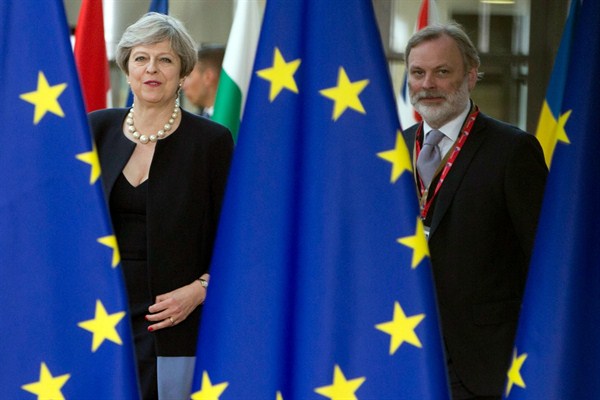What a difference a few months can make in British politics. In early May, a confident Prime Minister Theresa May looked well on her way to securing a much bigger majority for her Conservative Party in the House of Commons on a platform of “strong and steady leadership” and a promise to deliver on Brexit. Jeremy Corbyn’s Labour Party looked out of touch with the real concerns of most British people and seemed destined for electoral oblivion.
So the shock result of a hung parliament after the U.K. general election on June 8 not only transformed the British political landscape, it also cast a dark cloud of uncertainty over the shape that the country’s exit from the European Union would take.
Having reached a difficult deal with the Northern Irish Democratic Unionist Party, or DUP, to secure their support for a workable Tory-led minority government, May looks like she has again taken control of her party. But she is on borrowed time, essentially a glorified interim prime minister with the thankless task of bringing the Article 50 negotiations with the EU to a good end.

